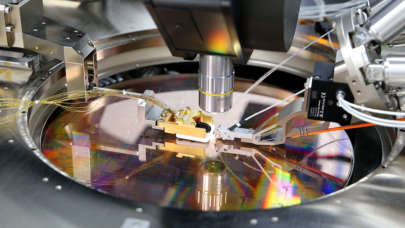At a time when university graduates in science and engineering may find job markets difficult, thousands of well-paying jobs go unfilled across the world because the graduates lack basic HPC competency and because supercomputing is sometimes mistakenly seen as an old technology. As part of the new STEM Student Day at the ISC17 conference (Wednesday, June 21), Michael Bader of the Technical University of Munich (TUM) and I will attempt to describe the problem and the opportunities.
This issue has been near and dear to me for quite a while. It affects the futures of young people coming out of universities, and to the extent that it’s not addressed, it will constrain the future of the global HPC industry. I invited Dr. Bader to team with me because TUM is a global leader in responding to this issue on behalf of its students.
The Problem
The HPC personnel shortage is no accident. When HPC funding from the U.S. Government and allied nations declined sharply after the end of the Cold War, the HPC market entered a period of slowdown from which it did not start to recover until about the year 2002, when the fast rise of HPC clusters caused a five-year spurt of 20% annual revenue growth. Between 2000 and 2016, the HPC market doubled in size, from about $11 billion to $22.4 billion—creating the need for many new employees in the process.

The period of HPC slowdown, occurring as it did alongside the explosive growth of Internet companies, helped to transform the image of HPC into that of a maturing and even a dying, “old technology” market. The number of university programs in computational science and related fields plummeted, as did HPC-related internship and postgraduate fellowship opportunities. Young people who might have chosen an HPC career a decade earlier all too often opted instead for employment with “new technology” Internet, PC or gaming companies. As a result, a high proportion of today’s graying HPC workforce is within a decade of retirement age and educational institutions are not producing enough HPC-trained graduates to replace them.
Worldwide Study
An extensive study we conducted for the U.S. Department of Energy in 2010—subsequent studies confirm that the situation hasn’t changed much since then—confirmed that the HPC community has only begun to address this job candidate shortage through new curricular and internship offerings, as well as through accelerated on-the-job training, but there is still a long way to go – especially in view of the challenges needed to harness the potential of exascale computers.
- The most-needed science and mathematics skills are multidisciplinary abilities, code physicists, and mathematicians. The highest-need HPC skills are for computer scientists, operating systems experts, parallel programmers, programmers for heterogeneous (CPU-accelerator) systems, systems administrators, tools developers, especially for large scale systems, and experts in verification and validation.
- The important future inflection points for the study respondents from HPC sites fell into the categories of: parallelism, petascale/exascale computing, HPC system heterogeneity, HPC system architectural balance, HPC system reliability, and HPC system and data center power and cooling. These inflection points are closely related to each other and therefore represent a complex of issues that in most cases cannot be addressed entirely alone.
- Nearly all (93%) of the HPC centers said it is “somewhat hard” or “very hard” to hire staff with the requisite skills. It is especially telling that the majority of the centers (56%) fell into the “very hard” category.
- The most fruitful source of qualified candidates for HPC positions are “university graduates in mathematics, engineering, or the physical sciences” (cited by 63% of the respondents). A smaller but substantial percentage of the respondents (48%) pointed to “university graduates in computer science.”
Many Universities Are in a Bind
The single biggest recommendation offered by HPC-knowledgeable study respondents in academic and training organizations was for universities to expand coursework in computational science, and to integrate computational science methods into the requirements for science and engineering degrees, certainly at the graduate level and preferably also at the undergraduate level.
If simulation really has become the third branch of the scientific method, complementing theory and physical experimentation, it stands to reason that science and engineering majors should be required to attain basic competency in computer simulation. But for many universities, that’s far easier said than done. Science and engineering curricula often are so tightly packed with requirements that adding anything new is a herculean task.
Yet, for the sake of graduating students and HPC’s growing importance in our societies, innovative solutions to this education problem need to be found. Michael Bader will present TUM’s approach at ISC. There are other universities pursuing innovative approaches. Hyperion plans to continue tracking this issue closely.
Description of ISC2017 STEM STUDENT DAY & GALA (from ISC web site)
ISC High Performance is a forum for HPC community members to network and explore opportunities – for current experts but also for future generations. We have created a program to welcome STEM students into the world of high performance computing, demonstrate how technical skills can propel their future careers in this area, introduce them to the current job landscape, and also show them what the European HPC workforce will look like in 2020 and beyond.
The ISC STEM Student Day & Gala will take place on Wednesday, June 21 and is free for students.
Author Bio:
Steve Conway, Senior Research Vice President, Hyperion Research, directs research related to the worldwide HPC and high performance data analysis (HPDA) markets. He is a member of the steering committee of the HPC User Forum and a frequent conference speaker and author, including of the global study for the U.S. Department of Energy, Talent and Skill Sets Issues Impacting HPC Data Centers. Mr. Conway was an executive at Cray, SGI and CompuServe. He had a 12-year career in university teaching and administration at Boston University and Harvard University. A former Senior Fulbright Fellow, he holds advanced degrees in German from Columbia University and in comparative literature from Brandeis University.






























































